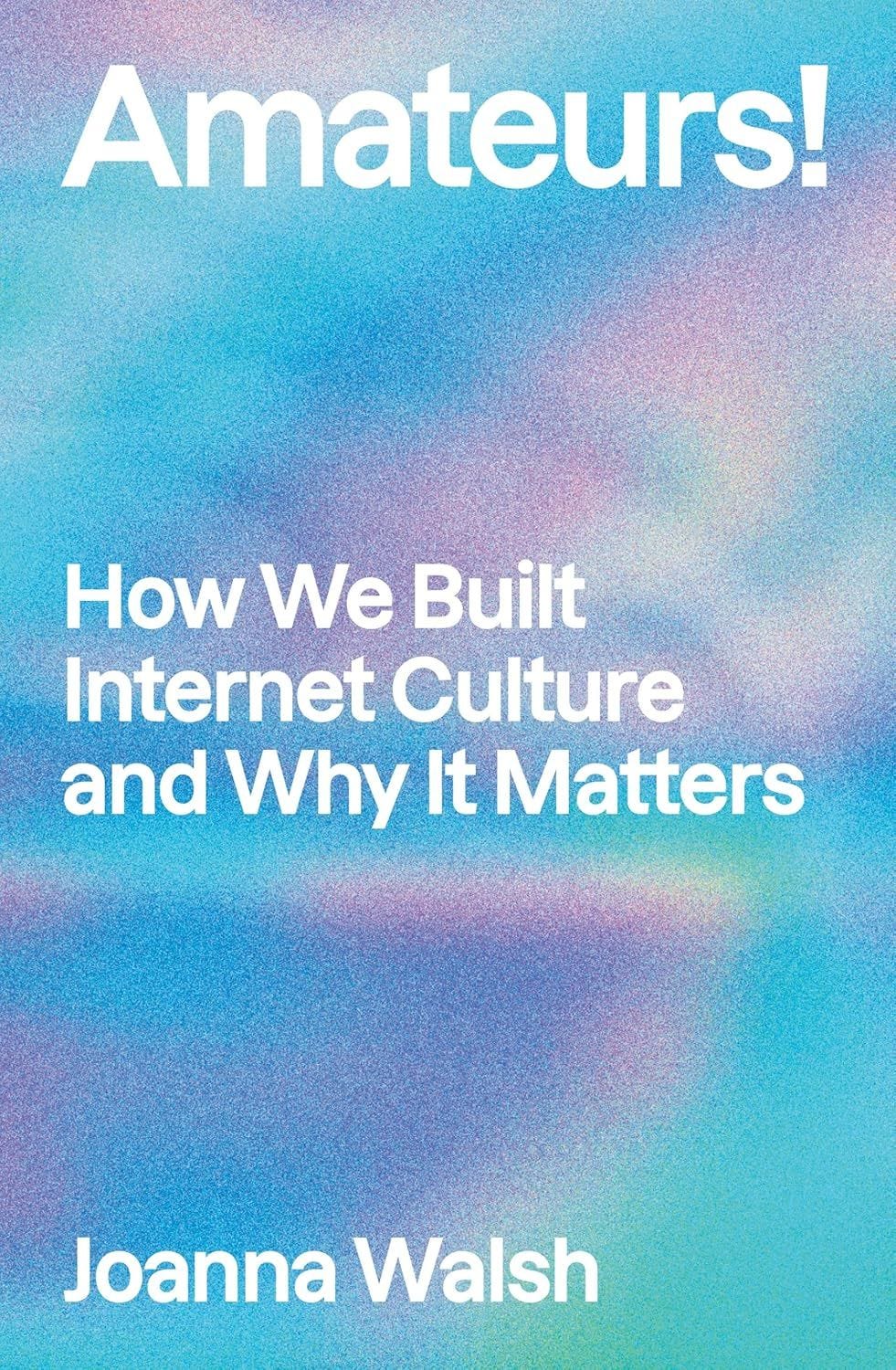Is social media still social?
An elegy for the Web 2.0 era
Hey friends, apologies in advance. This one’s not really about photography.
If you’ve been reading me for any length of time, you know that, in addition to photography, I study digital culture, social media, and how these things affect artists and imagemakers. I complain about it often, and I realize that can be off-putting for some, but what can I say? It’s on my mind today. Thanks for listening.
I’m thinking about social media again for various reasons. Last week, writer Virginia Heffernan was in Madison to speak at the university about social and its effects on our culture and politics. I’ve been a fan of Virginia’s work for years — her book, Magic and Loss: The Internet as Art, is a must-read for creative people who love the Web. She writes a terrific newsletter by the same name: Magic + Loss.
Virginia said something that stuck with me the other night, and I’ve been thinking about it all week. It was a quick phrase during one of her eloquent riffs on our digital lives: she called the 1980s and 1990s the “pre-monopolized internet.” I hadn’t thought of it that way before, but on reflection, it’s obvious and entirely true.
Like radio, which began more than a century ago with countless amateurs freely talking over the airwaves and eventually fell under corporate control, the internet and social media — used by many artists, writers, photographers, and other creatives to connect decades ago — have been overtaken by restrictive corporate and increasingly right-wing interests.
I’m old enough to remember when Web 2.0 made it easy (and fun!) to talk about and share our creative work. Nowadays, that is increasingly difficult, and it’s algorithms and ads all the way down. I know, I sound like a grumpy old man. Maybe I am. But the vibe has definitely shifted. It’s a genuine bummer.
I gave up cable television 25 years ago because I could tell it was rotting my brain; so much advertising and channel surfing bored me. I vividly remember cutting the cord near the end of college as I was preparing for my first backpacking trip to Europe. I remember how freeing it was to disconnect from the junk culture that was polluting the mainstream (and my mind) back in the early 2000s.
A few years later, I started blogging, which led me to use Facebook, Twitter, and Instagram to talk about photography and promote the people who practice it. Social media was exciting back then — thrilling, even — a new frontier for creative connection with like-minded artists and image-makers around the world. I was hooked, and I have been experimenting with it ever since.
This fall, I’m re-reading Neil Postman’s Amusing Ourselves To Death, and reflecting on how my 2020s social media habit reminds me of my 1990s cable TV habit. I wake up every morning, almost immediately look at my phone, and it’s off to the digital races, quality discourse be damned. I’ve come full circle, and it doesn’t feel good. With a few exceptions, my social media isn’t even that social anymore. It’s harder to connect with friends, and increasingly, much of what I see is ads, reels, and AI slop.
You know, Enshittification. Like junk food, it’s addictive and not at all nourishing.
I know this is my problem. I could delete these apps and log off if I wanted to. I could use these apps less. I’m obviously addicted to the buzz, and it could be worse. Still, I would miss my creative people if I logged off. Clearly, the answer is to break this habit, make peace with the rapidly changing nature of the social Web, and find alternative ways to connect with my photo community. But how and where?
This newsletter remains a bastion of hope, and I’m grateful so many of you subscribe and look at the stuff I show here. I was poking around in my Substack dashboard yesterday and found this — a snapshot of the folks who read FlakPhoto Digest. Seeing FlakPhoto’s global community still makes me smile. It feels good to know we’re still connected, despite the limitations of our rapidly devolving social media.
I stumbled upon Joanna Walsh’s new book, Amateurs!: How We Built Internet Culture and Why it Matters, the other day, and I look forward to reading it. At first glance, this sounds like it might address what I’m feeling — that my fellow artists and creatives made something meaningful happen online, only for it to be trashed by corporate overlords’ interests in recent years. I plan to read Amateurs! as soon as I can, and I suspect it will resonate with some of you. It does sound fascinating. From the LARB:
The open spaces of the digital commons that facilitated that moment are increasingly being replaced by digital enclosures, with creativity, connection, and fulfillment supplanted by an increasingly siloed and slop-saturated online world.
Web 2.0 might have liberated amateur creativity, but on Web 3.0, human-made aesthetic products are scraped by algorithms and reconstituted by AI. Another internet revolution is underway, one led not by enthusiastic amateurs but by platform capitalism and the people in power.
Maybe email newsletters are the best hope for digital community conversations? I’m going to try my best to spend more time sharing my thoughts here rather than on the social apps. We’ll see how it goes. Wish me luck.
Before I go, I wanted to thank Robert Darch for contributing the photo at the top of today’s post. I think you’ll agree, it’s gorgeous. If you like it, please check out his newsletter. Thanks for listening, friends. I’ll be in touch with more pictures soon. Be well!
If this post resonated with you, I would love to hear your thoughts. How are you coping with the changes in social media? Are you finding inspiration elsewhere or making do despite its limitations? Please drop a line when you have time.






I'm happier when I don't engage with Meta products. Bluesky has become way too overwhelming for me too. Plus, it doesn't feel conducive to engagement when you're just a little fish like me. Any other photo peep I follow on IG, also has Flickr. Which brings me to Flickr...as far as engagement with the photographic community, it still works the best for me. I will say, though, people have gotten out of the habit of actually communicating on any site, really. We've been trained to gulp it all down fast and just hit a heart or a thumbs up...and it takes effort to slow down and talk to people about their work (I'm mostly referring to Flickr here). I will also read long form newsletters and posts on Substack and Patreon.
I've been at this (photo sharing/blogging/even YT) for over twenty years. A long time ago I came to the conclusion I'm doing it mostly for me and if someone actually views/reads/watches/comments that's icing on the cake. What's better than anything are the friends I've made that I now know in person and who have become a part of my life...and I *am* grateful to social media for that.
Social media isn’t social anymore. It’s become passive consumption. In other words, TV. The social part, at least in apps like Instagram, is happening in DMs.